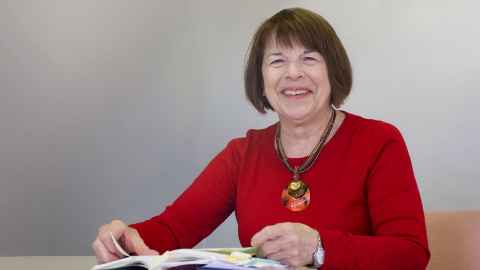Marie Clay secures portion of 1.9 million funding to help young learners
30 March 2021
Since its inception in 2016, the Marie Clay Research Centre has continued to promote research in learning and teaching in early oral languages and literacies of young children.

The Centre underpins its research with a focus of equity in literacy, prioritising ways to optimise learning for Māori, Pasifika, and children from immigrant backgrounds whose knowledge have been historically undervalued in education.
At the end of 2020, the Marie Clay Research Centre received $252,541 to contribute to a two-year project which will look at how sharing stories of lived experiences between children, whānau, and teachers can create openings for understanding that transform relationships between learning and teaching.
The funding is a portion of a $1.9 million Teaching and Learning Research Initiative (TLRI) fund, which invests in research projects that aim to improve outcomes for learners. Of the 53 submissions in 2020, their project was one of the eight selected.
Director of the centre, Professor Jan Gaffney, says they plan to "explore how 'everyday' storied conversations carve pathways of understanding that shape relationships, 'school' knowledge, and the members of the school/centre communities".
The project titled 'Understand me: crafting selves and worlds in collective storied conversations with tamariki/children, whānau/families, and kaiako/teachers' will be a partnership between University of Auckland’s Faculty of Education and Social Work, Auckland University of Technology, Papatoetoe North School, Owairaka District School, and Kamo Primary.
We will explore how 'everyday' storied conversations carve pathways of understanding that shape relationships, 'school' knowledge, and the members of the school and centre communities.
Principal investigators Professor Jan Gaffney and Dr Meg Jacobs, lecturer at Auckland University of Technology, and Associate Dean-Pasifika Jacoba Matapo, will co-design the project with teachers in the selected schools and three affiliated kindergartens, to find ways to engage in everyday being-listening-telling of storied conversations.
“We will establish how sharing lived-experience stories between children, whānau, and teachers creates openings for understanding that transform the relational praxis of learning and teaching,” says Professor Gaffney.
Storied conversations between triads of child, parent/whānau, and teacher will be ignited through sharing of artefacts, blogs, and multimodal story sharing at an upcoming event.
Multimodal storytelling is an important aspect to the research conducted within Marie Clay, says Professor Gaffney.
She says that as well as children and whanau sharing stories in their home languages, they express themselves through drawings, songs, gestures, play, dance and videos.
"Children naturally carry their valued family culture through these varied means of expression into school. Their stories enrich and add texture to school and centre knowledge."
Alongside its funding success, the centre has been involved in a number of other initiatives, including presenting results of five studies using multimodal storying methodologies in an international Research Symposium held virtually (due to Covid-19) out of Houston Texas.
The symposium featured performative snapshots of stories from qualitative studies that used storying methodologies to understand young children, their families, and teachers.
One presentation was by the centre researchers and the remaining four were by doctoral students studying within the centre and the Faculty of Education and Social Work.
Content writer: Zita Featherstone
Email: z.featherstone@auckland.ac.nz